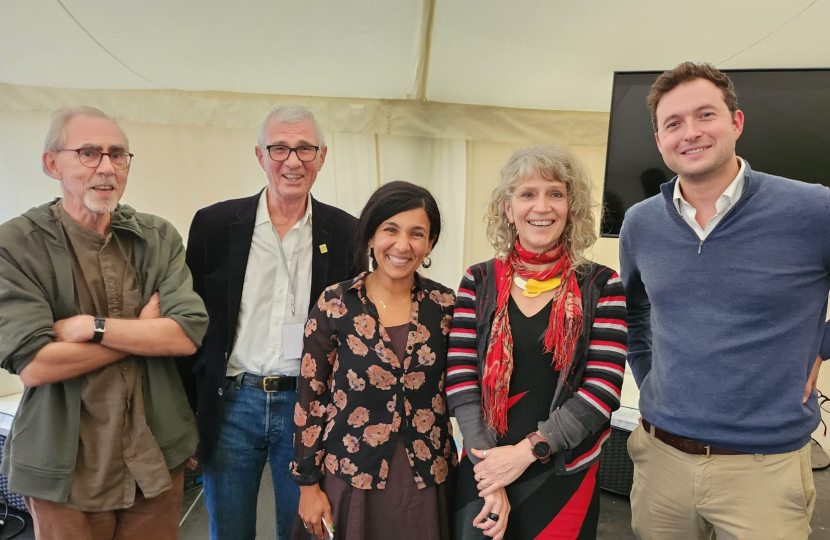
The draw to come to South Devon is not just limited to the summer months. Throughout the year, a plethora of events, engagements and exhibitions makes the region a destination for thousands of visitors. Whether it be the pirate festival in Brixham, the music festival in Kingsbridge, the arts festival in Totnes or the food festival in Dartmouth, our local culture is alive and well and proving to be quite the attraction for people from across the country.
The most recent, the Dartmouth Food Festival, was bigger and bolder than ever this year. It attracted thousands of visitors to the town and pulled local businesses and residents together in public spaces to promote local produce while also debating the need to improve food security, change our farming methods and the role of public organisations.
The food festival has rightly morphed from being just a platform to promote food and local produce into an opportunity to discuss how we can change and challenge where our food comes from, what it contains and the methods used to produce it. As an MP that has spoken often and frequently about regenerative agriculture and the need to protect our soils, I am naturally delighted that this once niche area has become more intertwined with our conversation about food, health and the climate.
At the end of this food festival, many will have left with a far better understanding of what we have on offer locally as well as (I hope) with an optimistic sense that there are positive changes happening across our food networks.
Perhaps, the most significant has been the UK’s departure from the Common Agricultural Policy and the creation of an Environmental Land Management Scheme, ensuring that public money is available for public good within our rural areas. Farmers are now rewarded for the work they do to enhance biodiversity and improve landscape recovery as well as produce food, as opposed to being paid for the total acreage they own. This significant shift is already bearing results, and the sector is having to work on lowering its harmful inputs and practices in favour of a more nature-based solutions.
While farmers are part of the solution, they are not the only ones who must be asked to change. Our schools play an important role in educating and helping to break the declining trend of being able to cook. Organisations like Chefs in School are doing valuable work to help educate and equip students with the necessary skills to cook as well as to understand the nutritional value and benefit of eating healthily. Our schools don’t just need to provide the education, they can also provide the space and place. School kitchens are fantastically underutilised, and we should be actively incentivising local catering and cooking companies to use them in return for cooking lessons and nutritional education.
From farms to schools, each and every level can play its part to break the bad habits within our food network. But what role for the state? Rather than limiting what people can and can’t eat, something I am vehemently opposed to, we need to change the approach and offering that is made to citizens. Denmark, faced with a similar rise in obesity and diabetes as the UK, decided to introduce a target of 60% locally purchased food for all publicly funded organisations. They set this target in 2001 and met it in 2011. It proved so successful that the city of Copenhagen increased the target to 80%. Best of all, it cost no additional money; it just required schools, hospitals, prisons and other organisations to consider their supply chains more often and to tilt them to a local level. With Devon exporting 80% of what we produce, there is more than enough capacity for us to follow this route, and with the recent passing of the Procurement Act, we have the law to support such a move.
There is always more to be done, but it is good to see the progress that is being made and even better to see local events such as Dartmouth Food Festival leading the debate.

